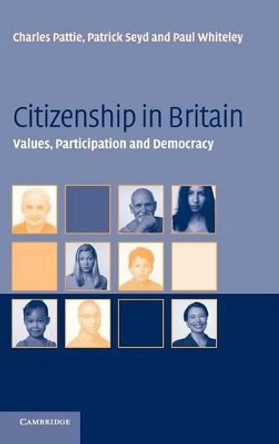Description
In an historically unprecedented way, democracy is now increasingly seen as a universal model of legitimate rule.This work addresses the key question: How can democracy be understood in theory and in practise?
In three thematically organised sections, Spaces of Democracy uses a critical geographical imagination (informed by thinking on space, place, and scale) to interrogate the latest work in democratic theory. Key ideas and concepts discussed include globalization and transnationalism; representation; citizenship; liberalism; the city and public space; and the media.
This volume comprises commissioned work by leading academics investigating democracy. Historical and comparative, animated by wider debates on globalization, it will facilitate the critical discussion of core questions on citizenship, the state, and democracy. Spaces of Democracy is essential reading for students of human geography, political science/international relations, and political sociology.
About the Author
Clive Barnett works on the geographies of democracy and public life. He is author and editor of books and scholarly articles on colonial and postcolonial discourses, critical theory and the public sphere, political philosophy, popular media cultures, poststructuralism, and social movements. This includes empirical research on the UK, South Africa, USA, and Europe. His current research focuses on emergent forms of public action and their implications for understandings of democracy. Clive is a member of the OpenSpace Research Centre, and is Co-Director of the Publics Research Programme in the Centre for Citizenship, Identities and Governance (CCIG) in the Faculty of Social Sciences at the OU. He is also a Member of the Open University's Ethics Centre. Murray Low's research focuses on relationships between geography and democracy including institutional and spatial aspects of elections, changing practices of accountability and legitimacy in cities, and the geography of political party organisations and social movements. His work has dealt with the relationships between global networks and democracy, constructions of globalization and states in geography, and geographical aspects of political representation. He has recently completed research funded by the Leverhulme Foundation into city democratisation in South Africa. He is co-editor of Spaces of Democracy: Geographical Perspectives on Citizenship, Participation and Representation (Sage, 2004), and of The Sage Handbook of Political Geography (Sage, 2008)
Reviews
'This volume successfully exposes the "ghostly presence" of democracy in the field of geography and shows the value of thinking about democracy geographically. It is a major contribution to serious examination of a normative political issue from a geographical perspective. This is welcome above all because geography is a field whose cultural and economic branches, though often claiming the appellation "critical", are currently dominated by unexamined radical political fantasies' - John Agnew, University of California, Los Angeles
"This book is a welcome contribution to geographic studies of democracy for two reasons. Geographic interpretation has much to contribute to our understanding of political change subsumed under the term "democratization," and this book will serve as a solid addition to that body of literature. Second, this collection brings together a proven group of scholars from geography. Overall, this is a highly recommended collection." -- Brennan Kraxberger * Newport News *
Book Information
ISBN 9780761947349
Author Clive Barnett
Format Paperback
Page Count 264
Imprint SAGE Publications Inc
Publisher SAGE Publications Inc
Weight(grams) 410g







